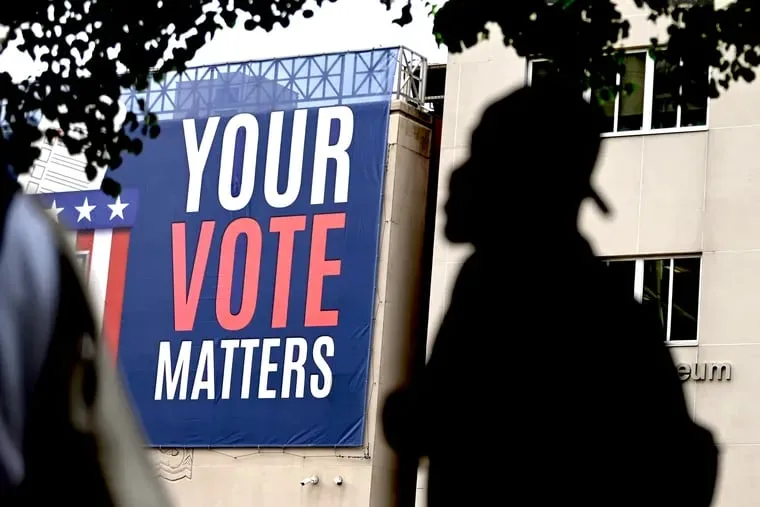
Black Americans are used to fighting for voting rights. But last week, they were dealt a devastating blow.
On Nov. 20, a federal appeals court issued a ruling that would prevent the Voting Rights Act from being used by private entities as the basis of lawsuits that allege racial discrimination in voting or other election practices.
The ruling, which will almost certainly be appealed to the Supreme Court, applies to both advocacy organizations and private citizens — meaning that it not only stops groups such as the NAACP and the ACLU from seeking remedies from the court on behalf of voters, it stops voters from seeking those remedies themselves.
If the ruling is upheld, only the Justice Department would be able to file lawsuits challenging discriminatory voting rules and other improper measures, and the Black people the Voting Rights Act was meant to protect would be unable to fight for themselves. Instead, they would be dependent on a government that, for centuries, has failed to protect them at every turn.
Black voters will not stand for that.
Over the years, we have faced numerous challenges to our voting rights. From snarling dogs to the lynching rope, from the shutdown of polling locations to purges of the voter rolls, from election police to gerrymandering, African Americans have seen it all. And still, somehow, we have managed to participate in the process, knowing that the franchise — our vote — was among the most potent arrows in our collective quiver.
The Black vote won the White House for Barack Obama. The Black vote was instrumental in winning the presidency for Joe Biden. The Black vote helped to secure victory for mayor-elect Cherelle Parker, and in the age of the fight for police reform, the Black vote will also bring us Parker’s choice for police commissioner, Kevin Bethel.
A former deputy commissioner in the Philadelphia Police Department, Bethel has long been a fixture in our city. Though some may have only seen him in his current capacity as chief of school safety for the School District of Philadelphia, I’ve seen him in my neighborhood barber shop, and talked to him about policing and politics. I’ve interviewed him on my radio show and watched him as he spoke on a panel on community policing.
From what I know of Bethel, he is open to innovation. When I interviewed him in August on WURD Radio, for example, he spoke of using minimally invasive gun detection systems to keep guns out of schools. He also discussed utilizing drones to patrol hotspots, and harnessing technology to fight crime. Still, Bethel is quick to defend traditional policing, which will not please activists seeking change in how officers interact with the Black community.
All of which comes back to voting, and the stark generational divide that has brought the Black community to this point.
We are at a crossroads of sorts, with external pressures like the recent federal appeals court ruling threatening voting rights, which could strip away our most potent defense against racism. But there are also internal threats to the power of the Black vote.
From what I see, Black activists are increasingly frustrated with the pace of change, and young African Americans are less than enthusiastic about voting. And in a development that should concern Democrats, a recent NBC News poll indicated that 20% of Black voters were open to voting for Donald Trump, despite Trump’s legal issues and his extreme right-wing policies.
Older African American voters are the driving political force in the Black community. Based on my conversations with Black voters, I’ve seen they largely remain loyal to Democrats, but their social and religious views are more conservative than progressive. They are unwavering in their push for racial equality, but their views on crime skew conservative.
In Philadelphia, Cherelle Parker’s law-and-order message resonated with those voters, and they listened closely when she promised strict enforcement and safer streets. Perhaps Kevin Bethel will be able to deliver on those promises. Perhaps he won’t. But as one of those older Black members of the electorate, I do know what we demanded with our votes.
We want equal treatment under the law. We want streets that are safe for law-abiding citizens. We want a city that doesn’t accept lawlessness. And even with all of that, we still want a city where Black people emerge from police encounters with their lives and their personhood intact.
That’s what we voted for this time around, and we must hold the new mayor accountable for delivering on her promises. But if we allow the appeals court ruling to stand, thus weakening the Voting Rights Act, someone else could determine how our community is policed, and that could cost real people their very lives.

